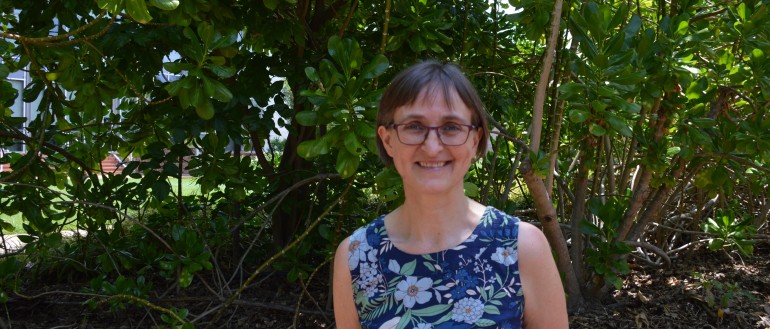Researcher Dr Robyn Marsh has been able to continue to develop her research career thanks to an innovative Gender Equity Fellowship at Menzies.
The fellowship was established to promote and encourage equity across Menzies, recognising that women are under represented at senior academic levels, by providing funding for women to develop and strengthen their research and research careers.
For Dr Marsh the fellowship made a real difference, enabling her to employ extra laboratory staff so she could focus on her research into new ways to diagnose the bacterial infections underlying protracted bacterial bronchitis, a common cause of chronic wet cough in children.
Protracted bacterial bronchitis can also be a precursor of bronchiectasis, a severe lung disease that, if left untreated, can result in permanent lung damage and reduced life-expectancy.
Prior to receiving a Gender Equity Fellowship, Dr Marsh says she spent many more hours in the laboratory doing hands on work plus supervising staff and students than many of her peers at other research facilities, with less time spent on research development and sourcing competitive research funding.
“My family responsibilities with a teenage son and a shift worker husband also had an impact, limiting how much time I could spend in the office, but I am grateful for the flexibility offered at Menzies and of course the support from the inaugural Gender Equity Fellowship,” Dr Marsh said.
She has since been awarded a prestigious fellowship from Rebecca L. Cooper (2020 Al & Val Rosenstrauss Fellowship), a four-year research grant that will enable her to improve understanding of disease processes underlying chronic wet cough.
Dr Marsh aims to translate knowledge about the complex combinations of bacteria that drive persistent bronchitis into new diagnostics that will be validated by clinical trials. Her research goal is to develop diagnostic tests that improve paediatric respiratory care, reduce the need for long-term antibiotic therapies and that can be delivered in urban and remote areas.
In further recognition of her research expertise Dr Marsh has been successful in leading a National Health and Medical Research Council (NHMRC) Ideas Grant, is part of the investigator team on a second NHMRC Ideas Grant and is a lead investigator of the Menzies team that was awarded funding from the Ramaciotti Foundation to establish the Ramaciotti Regional and Remote Health Sciences Training Centre designed to support development of a local health and biomedical workforce.

